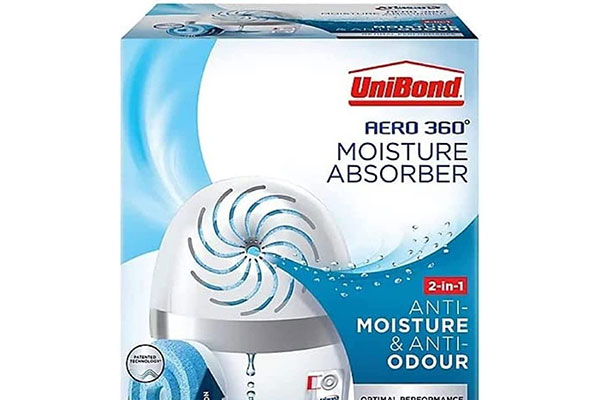Homeowners often think that the interior temperature of their space is their only real concern. If the space is kept comfortable, you can be happy, but this is not always the case. Overall humidity levels in your home can have a drastic affect on your overall comfort as well. It can also have debilitating effects on the structural integrity of your home.
Window condensation is evidence that your home may not be completely comfortable and the damage it causes can be significant.
What Causes Window Condensation?
Various daily activities contribute to water droplets of condensation on our windows. For instance, just 15 minutes in a shower can send 600g of water vapour into the air. That water vapour can and will descend on your windows as windows tend to be among the cooler surfaces in our homes. Moisture from cooking, cleaning, drying clothes, and cooking might not be an issue in areas with mild temperatures, but when the weather heats up outside or the interior temp is remarkably warm, humidity cannot hold in the air and will cause condensation on windows.
How to Stop Window Condensation
There are a variety of ways to stop condensation, but most methods will merely mask or eliminate the window condensation for a brief time. The key is stopping the ability of condensation to form with the use of a dehumidifier or condensation absorber. These units can work throughout the day or evening providing you ample piece of mind in knowing your home will be safe from harmful condensation.
Excess condensation can lead to harmful mould spores developing inside your home. Mould is a fungus that sticks to porous surfaces inside a home where humidity levels are too high. Mould is not only terrible to see, it is actually dangerous as well. Spores from mould are carried throughout your home and can lead to respiratory issues and make allergy sufferers very sick. It is best to eliminate the possibility of mould deposits in your home with the use of a dehumidifier unit or condensation absorber.
Condensation Between Window Panels
Condensation between window panels might seem like an all too common occurrence, but if you notice water droplets between the panels, the humidity level inside your home will be too high. Humidity is related to the outdoor temperatures, so if the interior of your home is very cold, while the outdoor temperature is warm, you will likely have a condensation problem if the humidity is not addressed appropriately. Mould forming in these areas can go unnoticed and therefore spread quickly within the window frame and walls surrounding windows in your home.
Mould forming in hidden areas can go unnoticed!
Condensation Inside Double Glazed Windows
Condensation can be a severe issue with double glazed windows. The problem can be emphasized due to the closed off space of the window style, but condensation can still become trapped. Generally, condensation issues inside double glazed windows is attributed by a broken or corrupted gasket. Ensure all gaskets surrounding the windows are properly maintained and not cracked or broken anywhere. It is imperative that you replace gaskets as needed to avoid the potential for ongoing condensation issues.
How to Prevent Window Condensation
Prevent Moisture from Spreading
Preventing moisture areas from spreading around the home can be difficult if you live in an open planned home, but if your kitchen is not exposed and has a way to close it off from the rest of the home, consider closing the door while doing dishes or cooking. The same notion can be used for the laundry room and bathrooms.
Ventilate Properly
As for the first suggestion, you might be a little put out by closing the door in a hot kitchen or laundry space, but ventilation is your friend in this instance. A properly ventilated space will not be as warm and more comfortable for cooking. This notion should also be given in bathrooms and other areas of the home that carry excess moisture. Carry the moisture away before it has a chance to descend on your windows.
Drying Clothing Indoors
During the winter, drying clothes can become an issue. If you own a tumble dryer, use that with proper ventilation, but if tumble dry is not an option for you, consider the use of a drying rack or dry pod in just one room. Devoting your drying needs to just one room will drastically limit humidity levels in your home from rising and decrease the chance of condensation becoming a significant problem.
Warm Your Home
Keeping the temperature warmer inside your home will ensure condensation is not a significant possible. Warming the home when possible and tolerating a higher temperature can take some getting used to, but should allow you to limit condensation. During the winter months, the issue is not nearly as common.
Insulate Windows
Another way to ensure your home stays condensation free is with the use of proper window insulation. Insulated windows prevent the exterior temperature from battling with the interior temperature for dominance. Insulation kits are available for most window types.
Employ Dehumidifiers
Dehumidifiers are by far the best ways to avoid the potential for condensation issues. These devices are cost effective and allow for moisture in the air to be taken away before it gets to the windows. Modern dehumidifiers can monitor interior humidity levels and regulate when the unit is needed. Once the unit is full of water, it will shut off. Simply drain the unit and begin the process all over again.
Selection of the Best Dehumidifiers
Last update on 2025-03-01 / Affiliate links / Images from Amazon Product Advertising API











